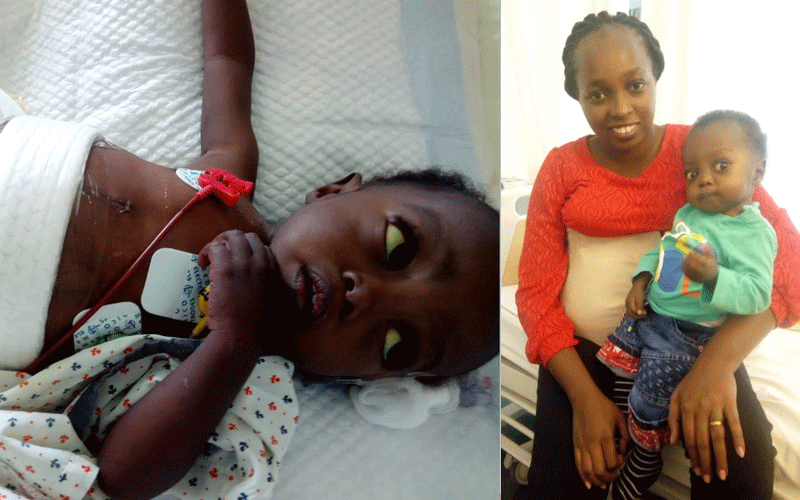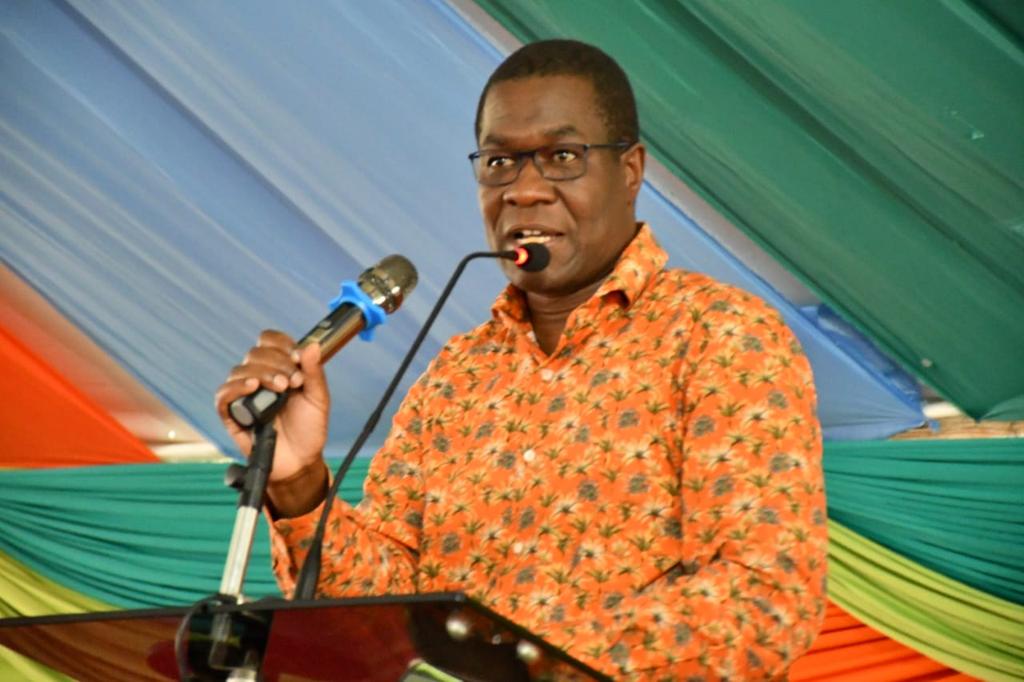I donated a third of my liver to my son

On the Easter Monday of 2018, Damaris Mbinya and her husband George Gathogo welcomed their second born child with so much excitement.
Baby Emmanuel Gathogo was a bouncing baby boy weighing 3.4 kilogrammes. Damaris had an easy pregnancy, so nothing had prepared the couple for unending hospital visits that followed.
One week after birth, she noticed a yellow tinge on the baby’s eyes. At first, it did not bother her, but when the condition persisted, she took him to hospital.
After several tests, they were reassured that it wasn’t anything to worry about.
“The doctor advised we just sunbathe the baby and it would clear. We continued with check-ups and at almost three months when it had not cleared, we felt that something was not okay— the baby was also not putting on weight, and the jaundice had now deepened. We decided to seek a specialist in Nairobi.
When she saw the baby, she recommended a Magnetic Resonance Cholangiopancreatography (MRCP) scan at Nairobi West hospital,” Damaris recalls.
The results showed an absent bile duct and an empty gallbladder. “We were immediately admitted at Gertrude’s Children Hospital, Muthaiga and booked for surgery.
The doctor informed us that the earlier the surgery was done, the higher the chances of success, and it could only be done before the 100th day of life.
Our baby was now on day 97, but we chose to give it a chance anyway,” Damaris adds.
After surgery he seemed to improve, but only for a short while. “Our joy was short-lived.
The liver enzymes started to rise. By this time, he was now growing so weak, his bones were so fragile, especially after weaning him at six months,” says Damaris who also has two other children.
Baby Emmanuel was put on multivitamin supplementation, and drugs to aid in bile flow.
Some of these drugs were so expensive and not available in Machakos where the family lived and had be to sourced from Nairobi.
Life threatening
“Geting a nanny was a challenge. This is because of my son’s delicate nature.
Also he was irritable, cried a lot, had jaundice, which caused his body to itch and a rash that didn’t seem to go away despite applying all medications we thought of,” she says.
They learnt that their baby had been born with biliary atresia, a condition in infants in which the bile ducts outside and inside the liver are scarred and blocked.
This meant the liver enzyme numbers continued to rise and it was in one appointment visit that the doctor announced that the only treatment option left for him was a liver transplant.
This information was a shocker to the young parents. They have never heard of a liver transplant and were gripped with fear of the outcomes.
Above that, the costs for the surgery were high, about Sh4.2 million and surgery could only be done abroad. But they did not want to lose their baby.
The doctor had explained that time was of essence, otherwise the baby would not see the second birthday.
“We first approached the National Hospital Insurance Fund (NHIF), but unfortunately, they would only pay Sh500,000.
I prayed, fasted, visited a prayer mountain for the first time crying to God to change the doctor’s report.
I thank God for Masii Christian Chapel in particular, Majesty Cell Group. We hosted all fellowships in my house and cried to God,” Damaris reveals.
Her husband’s friends and relatives organised a fundraising for the Sh3.7 deficit.
“We further called for help through social platforms and the media, but still didn’t meet the target and had a deficit of almost Sh1.8million. Left with no other option, we sold off some property,” she recalls.
Financial burden
Damaris recalls how some people even advised against risking so much to save the child saying they would soon bear more kids.
But as a family, their minds were made up. So together, they travelled to India mid last year.
In a 13-hour surgery at India Max hospital, Damaris gave 30 per cent of her liver to her son on June 25, 2019.
Both the mother and son were then moved to intensive care unit where Damaris spent five days. Emmanuel, however stayed for 21days and an additional week in the general ward.
After being prescribed a year supply of antirejection medication, the family was ready to go home.
Emmanuel’s recovery has been smooth. However, getting his medication has been a challenge for the parents.
Locally they could not get the drug, Cellcept in syrup form, and had to get it from India.
Emmanuel, who is now aged two years and three months has to be on the immunosuppressant for life so that his body does not reject the new organ.
He also see a doctor at Kenyatta National Hospital on a monthly basis. The medication cost Sh20,000 per month including check-ups for his liver enzymes.
The family is seeking support from well-wishers who would want to sponsor them through this journey as it has exhausted them financially.
“The post transplant meds are too expensive for us and he will be on them for life,” she says.











